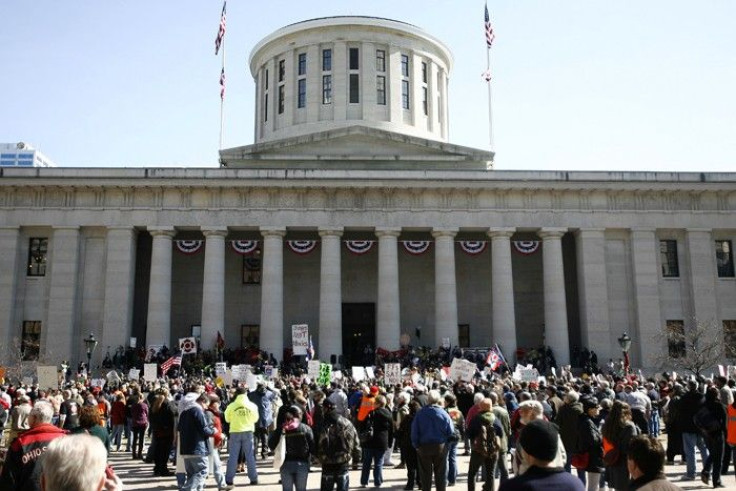2011 Election Results: Ohio 'Issue 2' Limiting Collective Bargaining Rejected by Voters

Ohio's labor law, which would have limited the collective bargaining power of 350,000 unionized public workers, was soundly rejected by voters Tuesday in a defeat for Republican Gov. John Kasich.
With 81.6 percent of the precincts reporting, 60.6 percent of voters had rejected the law, while 39.4 percent supported it, Reuters reported, citing figures from the Ohio secretary of state's Web site.
The closely watched referendum, Issue 2, was defeated following an expensive union-backed campaign composed of fiefighters, police officers and teachers pitted against Republicans. An unusually high number of voters came out this year for a non-presidential election.
Kasich toured the state to promote the law earlier this year, contending cutbacks were needed to balance the state's $8 billion budget deficit. Labor and some business interests, however, poured in more than $30 million to protect current union laws.
The result was a referendum on both the collective bargaining law and Kasich, said Ohio Democratic Party Chairman Chris Redfern.
The results tonight are a tremendous victory -- not just for Democrats but for all Ohio families, Redfern told Vindy.com. Voters were asked if they support John Kasich's anti-middle class agenda and they responded with a resounding 'NO.'
Kasich responded to the repeal at a press conference Tuesday night.
I've heard their voices, said Kasich, reported Vindy.com. However, he warned, Let me be clear there is no bailout coming, saying the state is out of money.
Although the vote means Ohio's current union rules will remain in place, the GOP-controlled Legislature will most likely revisit the issues posed in the law. Republican House Speaker William Batchelder said last week that less controversial parts of the law such as higher minimum contributions on worker health insurance and pensions will most likely be revisited in an effort to limit the budget deficit.
The vote was also closely watched by President Barack Obama. His campaign is trying to gauge both the voter turnout of labor members, who would most likely be in support of the president, and to get a sense of his chances in the key swing state next year.
© Copyright IBTimes 2024. All rights reserved.











